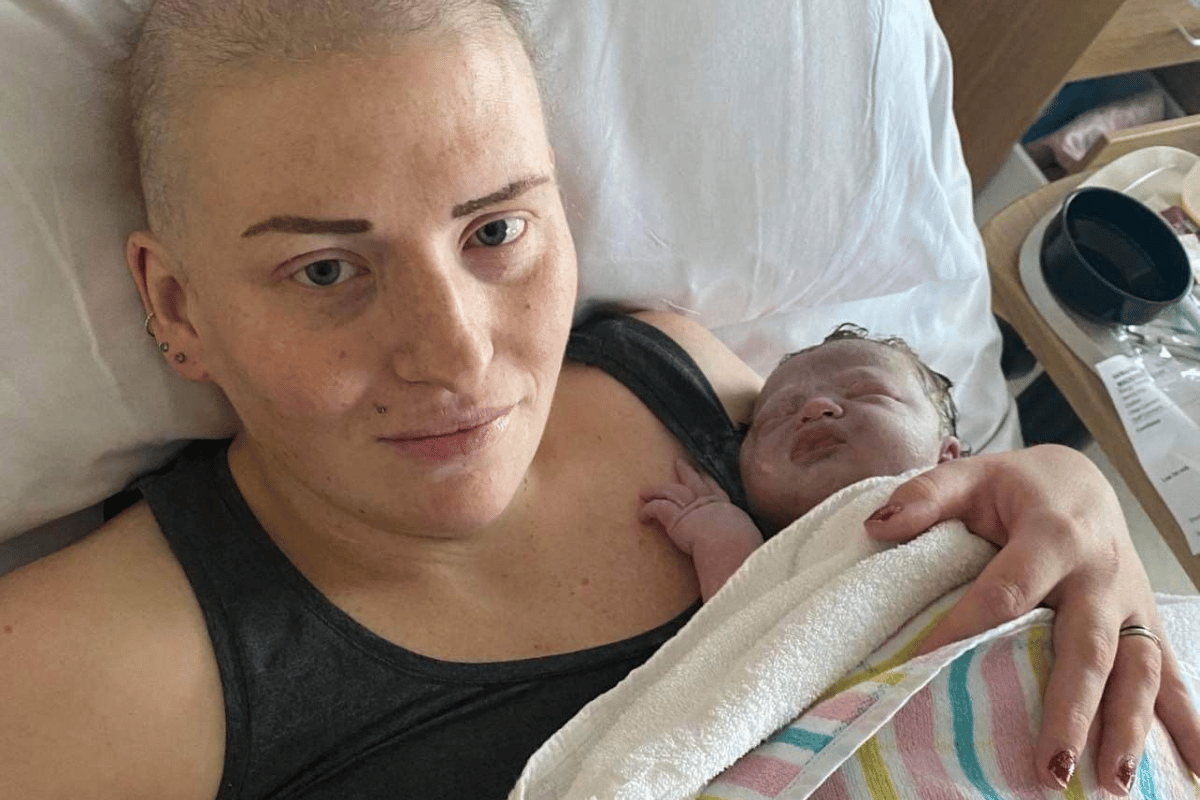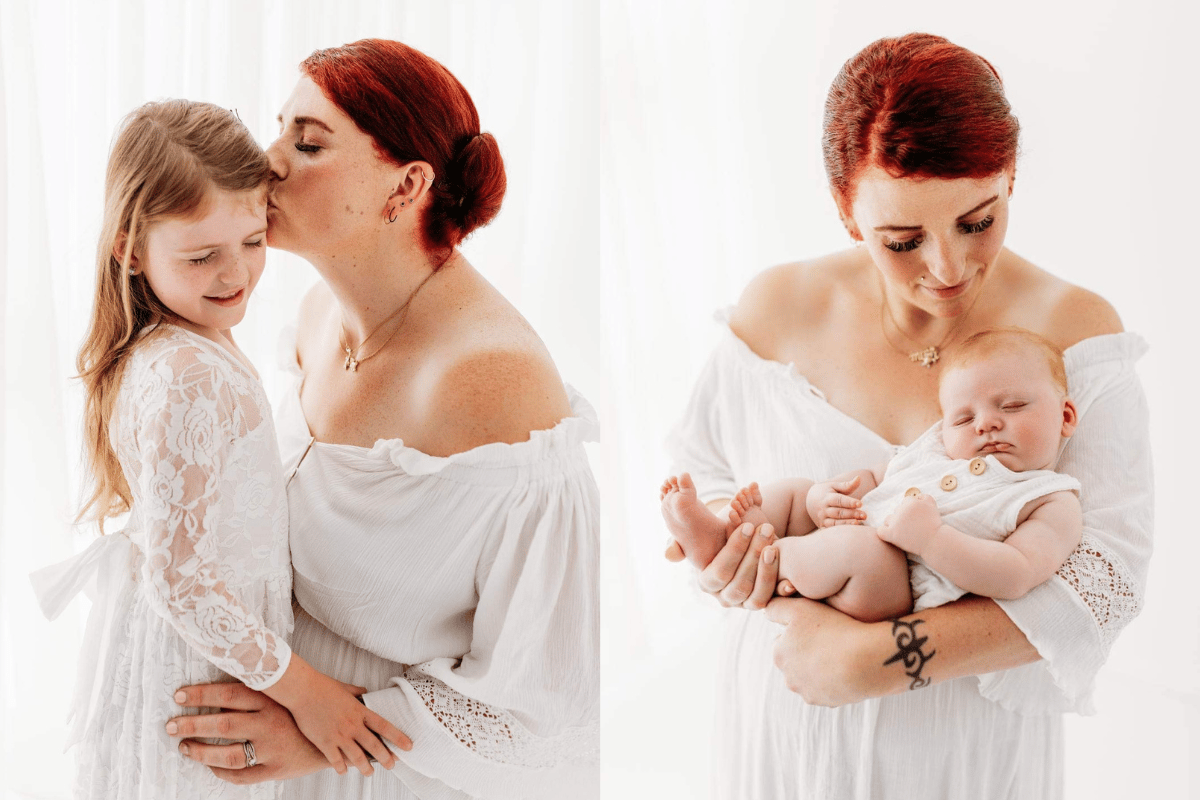
With six children and a loving husband, Susan has been told she has just months to live.
It's a reality that is heartbreaking and one she never anticipated.
It all began when she was expecting her fifth child. Early on in the pregnancy she found a little lump in one of her breasts. Some of her doctors assumed it was a blocked milk duct or something hormone-related.
But her GP was determined to investigate it further.
Within a few months that lump had tripled in size, and it was confirmed to be triple negative breast cancer (TNBC).
"It was surreal," Susan tells Mamamia. "It's been a devastating time."
Watch: Know Your Normal, a Pink Hope self breast check initiative. Post continues below.
After some chemotherapy rounds and a surgery, Susan felt optimistic that her cancer was under control. She and her husband went on to have their sixth child, Susan saying "I really wanted another baby, I didn't feel complete".
Fortunately, her sixth pregnancy went off without a hitch. Then a month after she had given birth, she was told the cancer had returned.



Top Comments